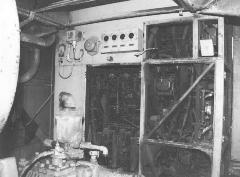
|
The first thing done in the repair was the removal of
all doors and access panels in order to survey the damage and attempt to
determine the reason for the fire. Most of the cabling located down
low in the cabinet was destroyed and about 80% of the rest of it had at
least part of the insullation burned off. In addition, the cabinet
really smelled bad from the fire. This is the engine side of the
electrical cabinet. |
|
|
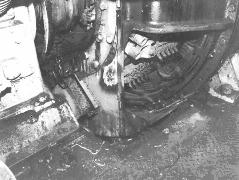
|
This is the fireman's side of the armature end of the
main
generator. Plenty of dirt and grease here but no
fire in the area. |
|
|
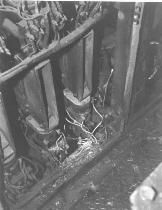
|
These are 3 of the main power contactors. The white
area below the right hand contactor was the hottest point of the fire as
the flames started directly below this area. |
|
|
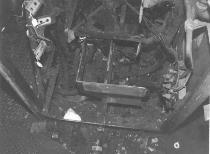
|
The cam switch which controls the connection of the dynamic
brakes. While not damaged, it certainly was blackened by the
fire. The cables attached to it were pretty much destroyed. |
|
|
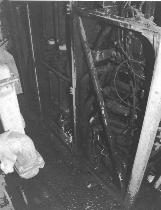
|
After the cam switch was removed, we could see the 2
or 3 inches of burned insulation laying on the floor of the electrical
cabinet. |
|
|
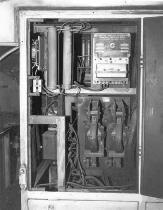
|
This is the starting contactor and auxiliary generator
regulator
panel. It is the top left panel when standing in the
cab, facing rearward. |
|
|
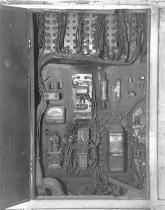
|
This is the low voltage cabinet which is the center panel
when
standing in the cab, facing rearward. |
|
|
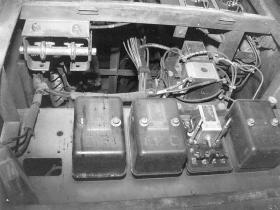
|
This is the alarm panel which is located on the right
side of the
electrical cabinet, just above the low voltage distribution
panel. |
|
|
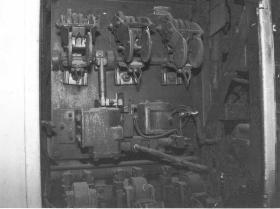
|
This is the braking contactor panel, located on the left
side of the electrical cabinet, just above the high voltage control cabinet. |
|
|
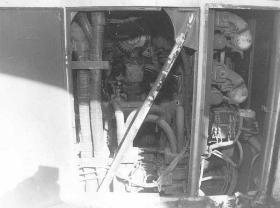
|
This is the braking contactor panel, seen from inside
the cab,
looking toward the rear. At the bottom of the photo
is the top of the reverser. |